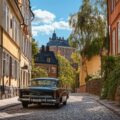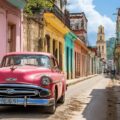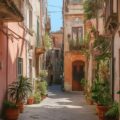Exploring the Vibrant LGBTQ+ Scene in Buenos Aires
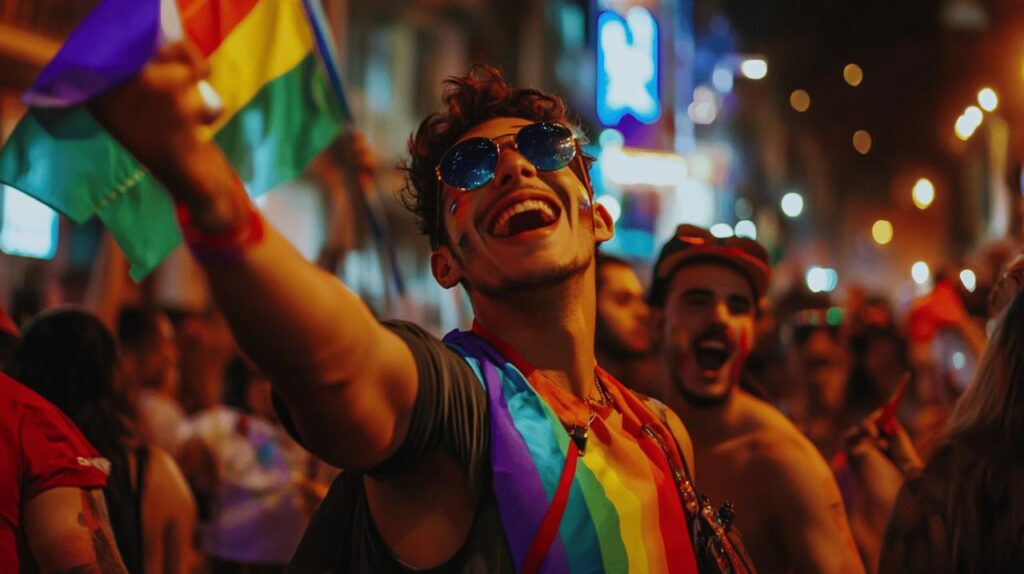
Buenos Aires, the vibrant capital of Argentina, stands as a beacon of LGBTQ+ acceptance in Latin America. With its progressive policies and welcoming atmosphere, the city has become a must-visit destination for queer travellers from around the globe. This comprehensive guide explores the rich tapestry of LGBTQ+ culture, history, and hotspots that make Buenos Aires a truly inclusive metropolis.
The History and Evolution of LGBTQ+ Rights in Buenos Aires
Argentina’s journey towards LGBTQ+ equality has been remarkable, particularly when viewed through the lens of its capital city. As highlighted in a recent feature by Walkabout Travel, Buenos Aires has emerged as a leading example of queer acceptance in South America, with a history of advocacy that dates back decades. The city’s progressive stance has created a foundation for the vibrant LGBTQ+ community that thrives there today.
Pioneering legislation that shaped Argentina’s progressive stance
Argentina made history in July 2010 when it became the first country in Latin America to legalise same-sex marriage, a watershed moment for LGBTQ+ rights in the region. This groundbreaking legislation wasn’t merely symbolic; it granted same-sex couples the same legal protections and benefits as heterosexual marriages, including adoption rights. The political momentum for this change was largely centred in Buenos Aires, where activists had been campaigning for equality for years.
Before this landmark achievement, Buenos Aires had already established itself as a forerunner in LGBTQ+ rights. The city passed anti-discrimination laws protecting sexual orientation in the late 1990s, creating a legal framework that acknowledged and protected its queer citizens long before many other Latin American cities. These early steps laid the groundwork for the national progress that would follow.
Key historical movements and figures in Buenos Aires’ LGBTQ+ journey
The LGBTQ+ rights movement in Buenos Aires has been shaped by courageous individuals and organised collective action. Perhaps most notably, Carlos Jáuregui, a pioneering sexual diversity and human rights activist, has been immortalised with a subway station bearing his name—a testament to his significance in the struggle for equality. Jáuregui founded the Comunidad Homosexual Argentina in the 1980s, one of the country’s first LGBTQ+ rights organisations, during a time when homosexuality was still heavily stigmatised.
The Buenos Aires Pride March, locally known as Marcha del Orgullo, began in 1992 with just 300 participants. Today, this November celebration attracts upwards of 200,000 people, reflecting the tremendous growth in both acceptance and visibility. The date commemorates the founding of Argentina’s first sexual diversity group, contrasting with many global Pride events held in June to mark the Stonewall Riots. This historical connection underscores Buenos Aires’ unique LGBTQ+ narrative that honours both international solidarity and local history.
Hotspots and Cultural Centres of Buenos Aires’ LGBTQ+ Community
Beyond its progressive legislation, Buenos Aires boasts a thriving queer cultural scene with dedicated spaces across the city. From bars and clubs to cultural centres and sports associations, the LGBTQ+ community has established numerous venues for expression, connection, and celebration.
Palermo and San Telmo: Neighbourhoods at the heart of queer culture
Palermo stands as the primary gay district in Buenos Aires, home to numerous LGBTQ+-friendly establishments. This fashionable neighbourhood hosts popular venues like Peuteo, a queer bar open Wednesday through Sunday from early evening until the early hours. Club Rheo BA and the iconic Thursday night party Club 69 at Niceto Club represent the pulsing heart of Palermo’s gay nightlife, attracting diverse crowds with their vibrant atmospheres.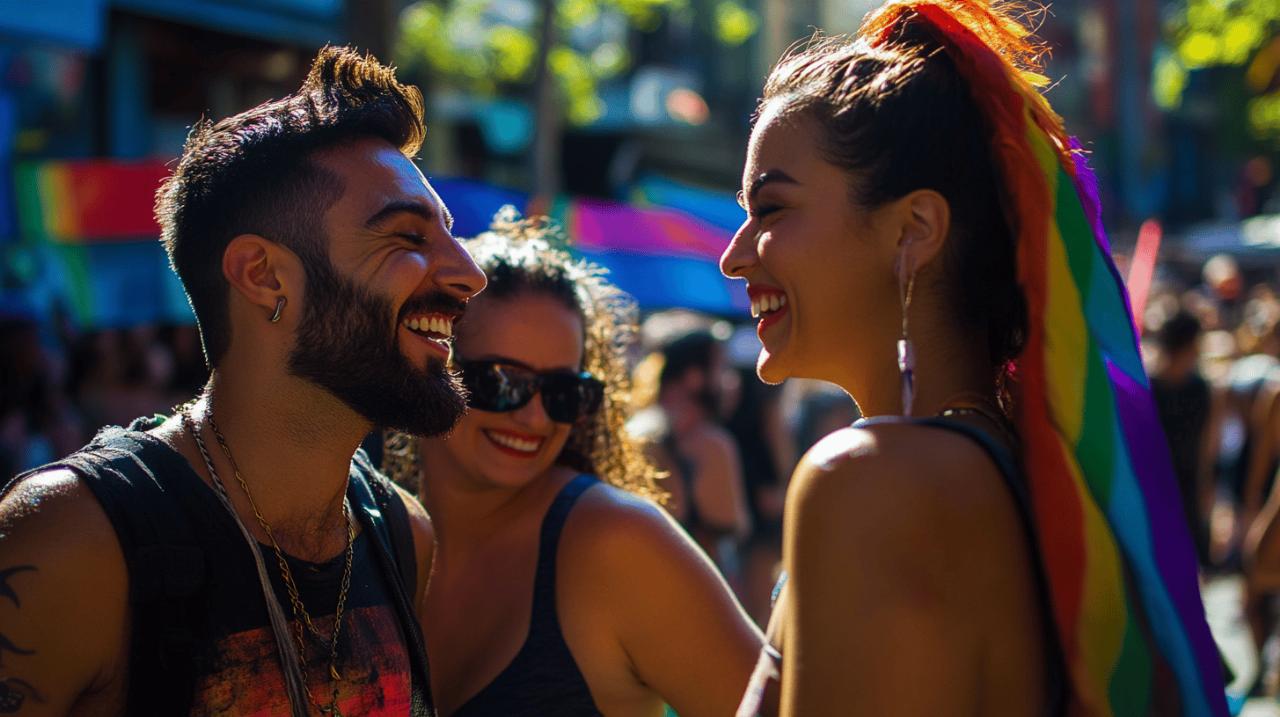
San Telmo, with its bohemian character and historic charm, offers another important queer hub. Pride Café, described as Argentina’s first daytime gay bar, plans to reopen in August 2025, continuing its legacy in this historic district. For travellers seeking accommodation, Patios De San Telmo provides gay-friendly lodging, while LGY GAY Bed & Breakfast offers a male-only option. The neighbourhood also hosts Tango Queer, a milonga where traditional gender roles in tango are reimagined, allowing partners of any gender to lead or follow as they choose.
Cultural spaces like Casa Brandon, an LGBTIQ+ centre established in 2005, offer programming beyond nightlife, with art exhibitions, performances, and community events. Similarly, Maquinal – Espacio Cultural combines art, technology, and activism to create innovative queer experiences. These venues demonstrate how Buenos Aires’ LGBTQ+ scene extends beyond entertainment to encompass cultural enrichment and community building.
Annual events and celebrations embracing diversity in the city
November emerges as a particularly significant month for LGBTQ+ celebrations in Buenos Aires. The Buenos Aires Pride March transforms the city streets into a colourful demonstration of solidarity and joy. Concurrent with this main event, the Asterisco Film Festival showcases queer cinema, while the Queer Tango Festival celebrates the city’s most famous dance form through a LGBTQ+ lens.
Sports have become an increasingly important aspect of Buenos Aires’ LGBTQ+ community life. Dogos Natación, a swimming group for the LGBTQ+ community, recently hosted the International Gay and Lesbian Aquatics championship (IGLA 2024), highlighting the city’s growing prominence in inclusive sports. Similarly, Yacarés BA Civil Association, which recently celebrated its fifth anniversary, promotes LGBTQ+-inclusive basketball and volleyball, creating safe spaces for queer people to engage in athletic pursuits.
The International Pride Day on 28th June, commemorating the Stonewall Riots, is also observed in Buenos Aires, though with a distinctive local character that reflects Argentina’s unique history with LGBTQ+ rights. These celebrations, alongside neighbourhood-focused initiatives like the JJ Cultural Circuit, a transfeminist space, demonstrate the diverse ways in which Buenos Aires embraces and celebrates its LGBTQ+ communities throughout the year.
















